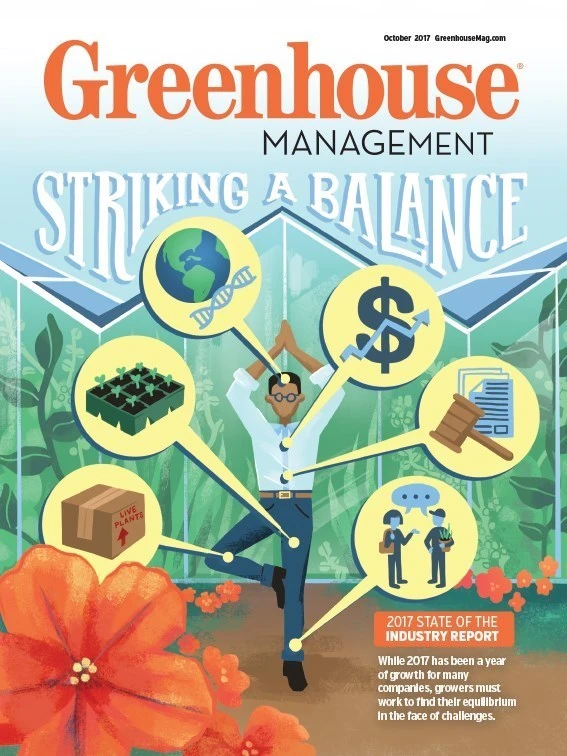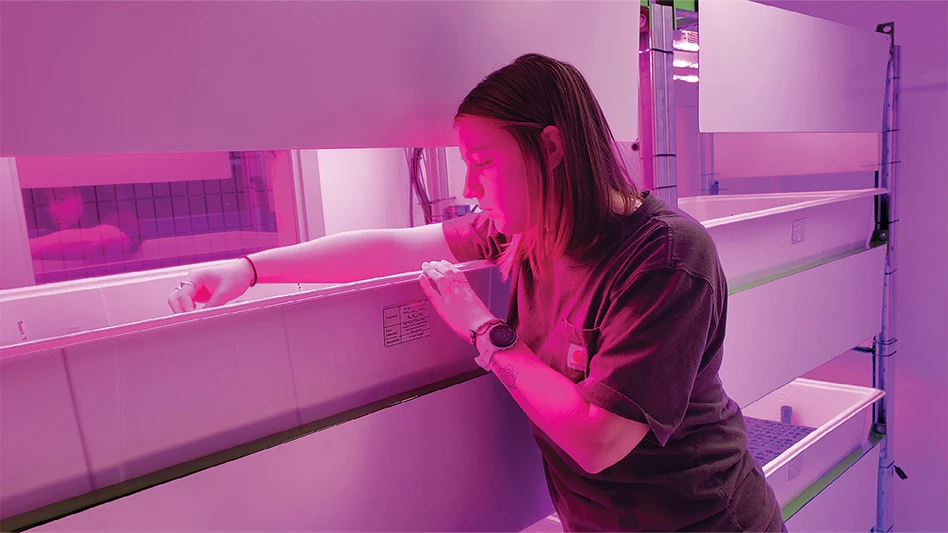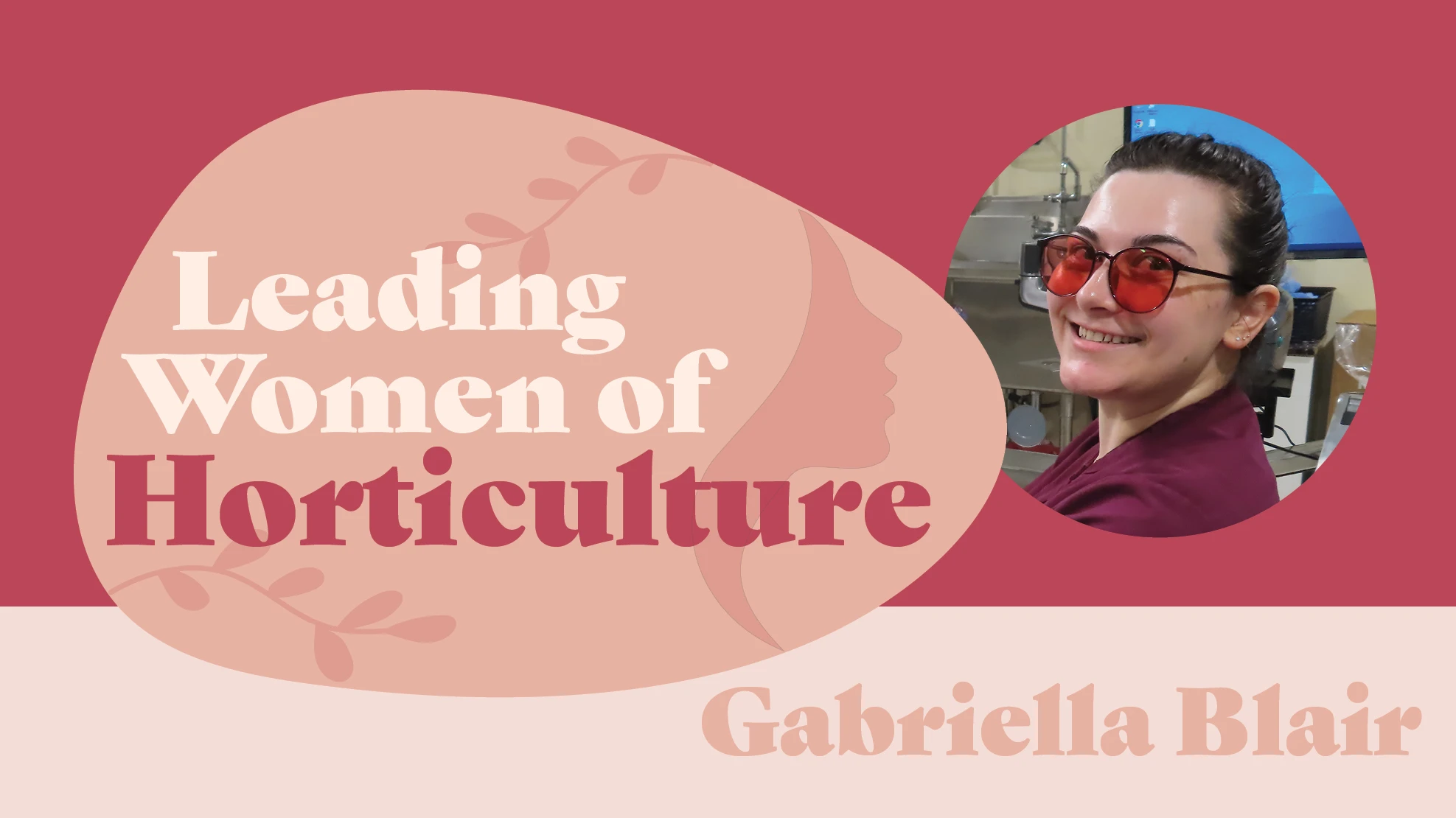
For a week in late summer in Denver, horticulture industry professionals with a passion for perennials congregated to share their love of foliage, flowers and Latin names. With gusto, 450 attendees learned about xeriscapes and native perennials of the west, water-wise perennials in the east, and became acquainted with some much-anticipated new introductions.
The many speakers at the Perennial Plant Association Symposium included Al Gerace of Welby Gardens, Panayoti Kelaidis and Mike Bone of the Denver Botanic Gardens, “The Foodscape Revolution” author Brie Arthur and Plant Delights Nursery founder Tony Avent. (Based in Raleigh, N.C., Avent will welcome PPA to his city in 2018.)
PPA members and guests visited locations such as the Denver Botanic Gardens and the Denver Botanic Gardens at Chatfield Farms, the Colorado State University Trials and Horticulture Center, and hemp facility Greenhouse Growing System. They also took in the views at Garden of the Gods, a public park with rock formations in Colorado Springs, and let loose watching folk rock band House With a Yard at High Hops Brewery, a combination garden center-brewery, in Windsor, Colorado.
Plants that drink responsibly
A former Temple University professor and former director of the Landscape Arboretum at Temple University, Stephanie Cohen is known by many industry professionals as the “Perennial Diva.”
In a PPA presentation, Cohen, who holds a master’s degree in ecological studies, said the climate is changing, and she has reached that conclusion from information she has gathered herself. “The water situation is getting more and more critical,” she said. “We have to start thinking about it. We don’t have the resources anymore to support plants on life support systems. If you’re watering a plant or your customer’s watering a plant three times a day, then they’re growing it in the wrong spot or in the wrong region.”
One solution to help alleviate the horticulture industry’s contributions to the climate issue, Cohen said, is to offer scholarships to promote the fostering of horticultural scientists. Another solution is to water less by growing “Plants that drink responsibly,” which was the title of Cohen’s session at the Symposium. She focused the session primarily on plants that thrive on the East Coast.

Irises are examples of low-water plants in East Coast climates, thriving with little care, Cohen said. “I have thrown irises on my compost pile and had them start regrowing,” she said. “How much water were they getting? None.” Iris sibirica is one species that Cohen hasn’t had to do much with in her garden, other than occasionally divide it. The plant comes in solid colors, bicolors and the foliage doesn’t get “ratty” like some other species of iris, she said.
Introduced by Rick Darke, Aster cordifolius ‘Avondale’ stands out because it grows in dry shade, Cohen said. “How many things can you grow in dry shade for fall that still look good?” she said. Asters look especially good next to a Solidago rugosa, such as the ‘Fireworks’ variety.
Yarrow, or Achillea millefolium, appeared on tours at the Symposium, flourishing in the hot and dry conditions of late July on Colorado’s Front Range. What’s more, Cohen said, yarrow attracts butterflies and bees. “I couldn’t think of a better plant to grow for things that like dry sites,” Cohen said. “Achillea Strawberry Seduction is probably my favorite one, of all the yarrows, because when it starts to fade, it fades to a pink and then a white.”

New perennials from the western United States
Based out of Santa Fe, New Mexico, David Salman is a plant collector and the founder and chief horticulturist at High Country Gardens, a plant catalog. He is also a founding member of the Colorado Plant Select Program, a nonprofit collaboration of horticulturists, Denver Botanic Gardens and Colorado State University that finds and distributes plants that perform well in intermountain regions and high plains.
When Salman is collecting and selling plants, one of the main attributes of a desirable plant is that it does well in the garden when it reaches the end consumer. “If customers are going to be happy with our product, it can’t just look good on the greenhouse bench,” he said.

Salman told his audience at the Symposium that he seeks native plants for their ecological functions — attracting pollinators, beneficial insects and songbirds. Meanwhile, what he calls “Old World plants” from Europe, Asia and Africa don’t provide food for native insects, but they can play a role in western landscapes as well. Salman has spent his 30-plus year career at high elevations, so he focuses largely on cold-hardy plants. He also focuses on habitat-collected plants and seeds, which he said provide “some amazing surprises and some amazing beauty.”
Native to 26 states and particularly hardy to Zones 4 to 9, Bouteloua gracilis Blonde Ambition thrives from the coast of California to Washington, D.C., showcasing chartreuse seedheads that turn blonde, Salman said. The Denver Botanic Gardens has Blonde Ambition — High Country Gardens’ first plant patent — on display, and one of the world’s most influential companies soon will as well. “I was thrilled to learn that at the new Apple spaceship in Cupertino — their new campus — they’re planting 40,000 Blonde Ambitions,” he said.
A clonal variety, Eriogonum umbellatum Gentle Giant is propagated from cuttings, Salman said. Eriogonums grow about two feet tall and three feet wide. They have evergreen silver foliage and are hardy to Zones 4 to 8. “In terms of ecological importance in the garden, they attract pollinators, and they are a tremendous host plant for beneficial insects,” he said.

Explore the October 2017 Issue
Check out more from this issue and find your next story to read.
Latest from Greenhouse Management
- CEA Alliance celebrates bipartisan introduction of Supporting Innovation in Agriculture Act
- Dümmen Orange North America celebrating 25th anniversary in 2025
- CEA HERB Part 1: Best management practices for culinary herbs
- Lawsuit challenges new H-2 visa rules
- CEA HERB Part 2: A guide to increasing the sowing density of culinary herbs
- Illinois Landscape Contractors Association changes name to Landscape Illinois
- 2025 Proven Winners Horticulture Scholarship applications now open
- ICL’s Gemini Granular herbicide now registered for use in California






